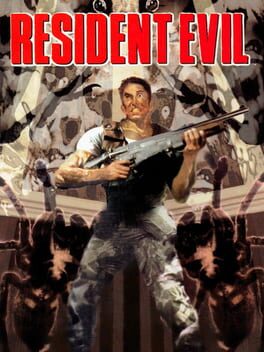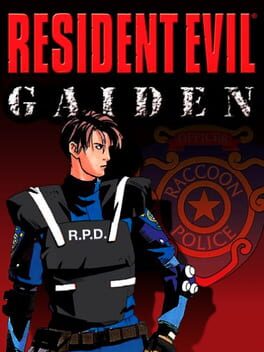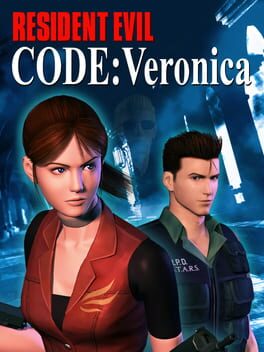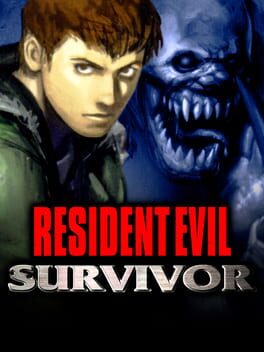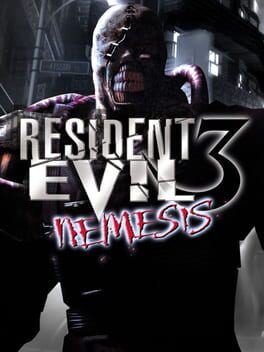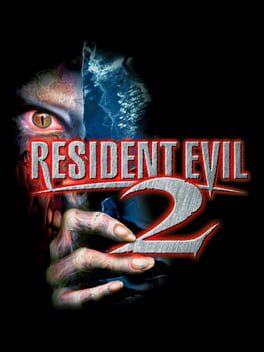

Resident Evil is a survival horror classic in which a group of special forces agents, known as S.T.A.R.S, struggle against hordes of zombies and various other mutants in a mysterious mansion as they try to uncover the truth behind the terrifying infection. The gameplay environment consists of polygonal 3D characters placed over pre-rendered 2D backgrounds. As such, the game relies on pre-determined camera angles for a view of the action instead of a real-time camera like most games. The game is credited for coining the phrase "survival horror" and popularizing the genre.
Also in series
Reviews View More
This game is pretty interesting playing through for the first time after you've already played the remake and other survival horror, you can easily clear both campaigns in ~6 hours and the pace is much faster than the survival horror games that followed. You can zip around the mansion very quickly and it's pretty hard to actually die. Playing this makes me appreciate the remake more because the mansion here feels almost empty in comparison, there's hardly even any puzzles outside of some box pushing which surprised me. However I do think the game is still fun and the fast pace of it is actually kind of refreshing compared to modern survival horror games that tend to limit you very heavily. I think a randomizer on this game would actually be pretty fun compared to other games in the series because of how quickly the mansion can be solved. I do recommend playing it but it's unlikely it'll blow you away if you've already played the remake.
Sick with COVID, I thought what better way to relax than playing the very first game that unleashed the T-Virus on the world. I never finished the first Resident Evil game, and instead of playing the lauded remake, I decided to go back to the 1996 original and play it with the original controller.
This game still holds up, promoting a massive tension between your resources, movement, gunplay, and exploration. I was constantly searching for bullets to survive my next encounter, often trying to push my way through rather than waste a clip downing a zombie. I totally forgot that Ink Ribbons are a finite resource, so working out WHEN to spend my Ink on a save, and when to just risk it and keep going was a wonderful tension that cannot be understated.
The dialogue and voice acting is bad... horrendously bad... and that FMV is an all-timer. But it also plays into the loveable charm and quirkiness of this first game that the rest of the series thankfully left behind. I dug it.
Definitely worth revisiting to remember the roots of Raccoon City.
This game still holds up, promoting a massive tension between your resources, movement, gunplay, and exploration. I was constantly searching for bullets to survive my next encounter, often trying to push my way through rather than waste a clip downing a zombie. I totally forgot that Ink Ribbons are a finite resource, so working out WHEN to spend my Ink on a save, and when to just risk it and keep going was a wonderful tension that cannot be understated.
The dialogue and voice acting is bad... horrendously bad... and that FMV is an all-timer. But it also plays into the loveable charm and quirkiness of this first game that the rest of the series thankfully left behind. I dug it.
Definitely worth revisiting to remember the roots of Raccoon City.
Best ending reached with both Jill and Chris. Classic REbirth fan patch used.
It's surprising how early they had the tenets of RE figured out: even looking past how the resource management and cinematic bent are already firmly in place—not to mention their unfortunate habit of front-loading the game's best bits in the opening hours—I was shocked to see just how much they emphasized replayability from the start. The twin campaigns are distinct enough to each be worth playing, yet similar enough that Jill's easier run works very well as a primer for Chris' rougher go of it.
It's surprising how early they had the tenets of RE figured out: even looking past how the resource management and cinematic bent are already firmly in place—not to mention their unfortunate habit of front-loading the game's best bits in the opening hours—I was shocked to see just how much they emphasized replayability from the start. The twin campaigns are distinct enough to each be worth playing, yet similar enough that Jill's easier run works very well as a primer for Chris' rougher go of it.
